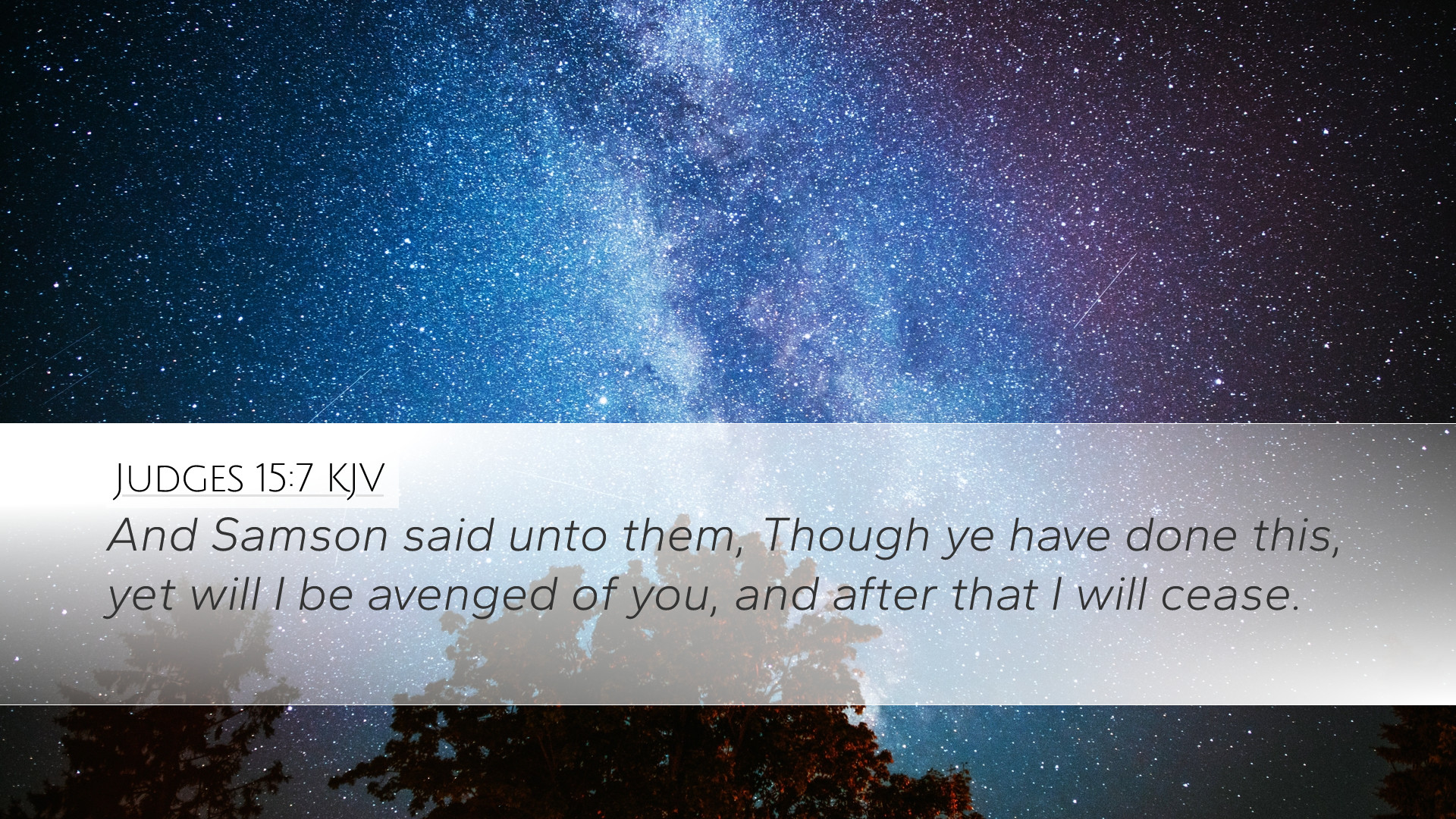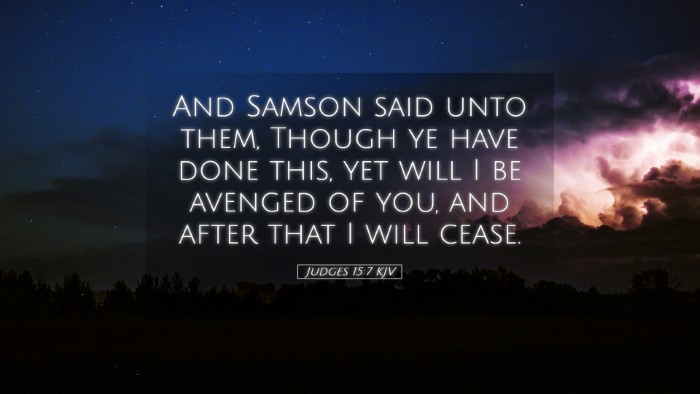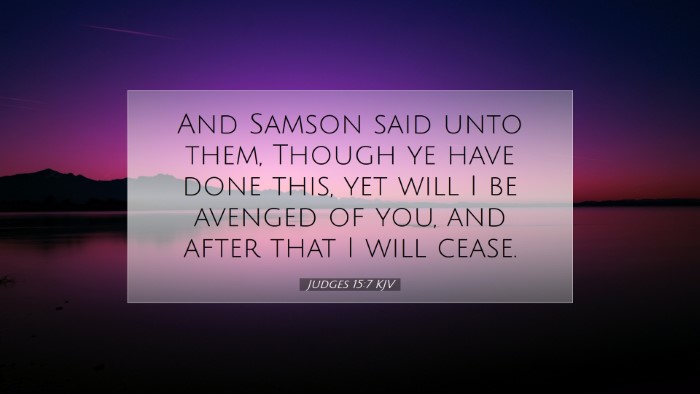Old Testament
Genesis Exodus Leviticus Numbers Deuteronomy Joshua Judges Ruth 1 Samuel 2 Samuel 1 Kings 2 Kings 1 Chronicles 2 Chronicles Ezra Nehemiah Esther Job Psalms Proverbs Ecclesiastes Song of Solomon Isaiah Jeremiah Lamentations Ezekiel Daniel Hosea Joel Amos Obadiah Jonah Micah Nahum Habakkuk Zephaniah Haggai Zechariah MalachiJudges 15:7
Judges 15:7 KJV
And Samson said unto them, Though ye have done this, yet will I be avenged of you, and after that I will cease.
Judges 15:7 Bible Commentary
Commentary on Judges 15:7
Verse: Judges 15:7 - "And Samson said unto them, Though ye have done this, yet will I be avenged of you, and after that I will cease."
Introduction
This verse comes at a pivotal moment in the narrative of Samson, a judge of Israel known for his extraordinary strength and tumultuous life. The context in which this statement is made sheds light on the themes of vengeance, justice, and divine sovereignty that pervade the book of Judges.
Textual Analysis
Samson, outraged by the betrayal of his Philistine wife and the ensuing situation, expresses his intention for revenge. This desire for vengeance is a prevalent human emotion, but it serves as a cautionary tale of the consequences of letting anger dictate one's actions.
Contextual Setting
The narrative of Samson emphasizes the cyclical nature of disobedience and ensuing judgment in the history of Israel. Each judge, including Samson, reflects not only individual struggles but also the collective moral decay of the nation.
Theological Implications
This passage raises several theological considerations that are relevant to pastors, students, and scholars:
- The Nature of Justice: Samson's desire for vengeance highlights the struggle between human justice and divine justice.
- Retribution vs. Forgiveness: The text invites reflection on the human inclination toward retribution and the Christian call to forgiveness.
- Divine Sovereignty: Despite his personal motivations, God’s overarching plan continues to unfold through Samson's actions.
Insights from Commentaries
Matthew Henry
Matthew Henry emphasizes that Samson's words reflect his personal vendetta. He notes that while Samson has been wronged, it is essential to understand that God’s purposes may still be at play. Henry warns against allowing personal anger to overshadow divine intentions, suggesting that it leads to destructive behavior.
Albert Barnes
Barnes interprets this verse within the broader narrative of the Philistines' oppression. He points out that Samson's reaction is typical of human nature when wronged. Barnes encourages readers to recognize the pervasive nature of sin and the cycle of vengeance it creates, which ultimately does not fulfill the righteous judgment expected by God.
Adam Clarke
Clarke provides a more detailed examination of Samson's motives and the cultural context of vengeance. He brings forth the idea that the notion of honor and disgrace was significant in ancient societies, prompting individuals like Samson to react violently when their honor was challenged. Clarke suggests that understanding these cultural nuances is crucial for comprehending the actions and motivations of the biblical figures.
Applications for Contemporary Readers
The story of Samson, particularly this moment of vengeful intent, serves as a powerful reminder for contemporary believers:
- Self-Reflection: Individuals are encouraged to examine their motivations when feeling wronged.
- Communication of Inner Conflict: The internal battle between the desire for revenge and the call to forgive can be explored in sermons and discussions.
- Understanding God’s Plan: Believers are reminded that even in difficult circumstances, God’s sovereignty remains intact.
Conclusion
Judges 15:7 encapsulates a moment of profound human emotion and reaction. By examining the motives of Samson through insights gained from public domain commentaries, readers can find rich theological reflections that address personal behaviors, societal norms, and divine sovereignty. For pastors, students, and scholars alike, this passage serves as a reminder of the complexities of human anger and the paramount importance of aligning our responses with God’s will.


